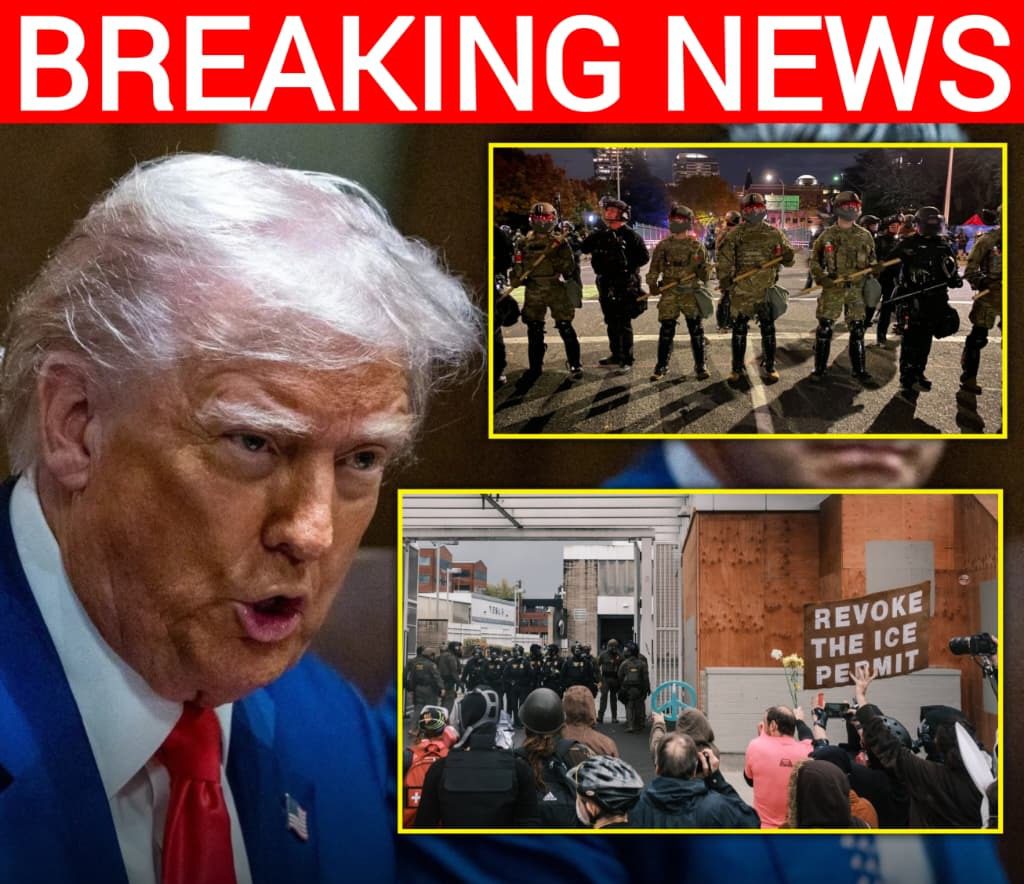Federal Court Backs Trump’s Move to Deploy National Guard to Portland, Overturns Lower Court Block in Sweeping Pro-Law and Order Victory
In a major victory for President Trump and his push to restore law and order across America’s cities, a federal appeals court has officially cleared the way for the deployment of National Guard troops to Portland, Oregon. The ruling, handed down by the 9th Circuit Court of Appeals on October 20, 2025, overturns a previous injunction and authorizes Trump’s executive order to federalize Oregon’s National Guard in response to escalating anti-ICE demonstrations and violent Antifa-led protests.
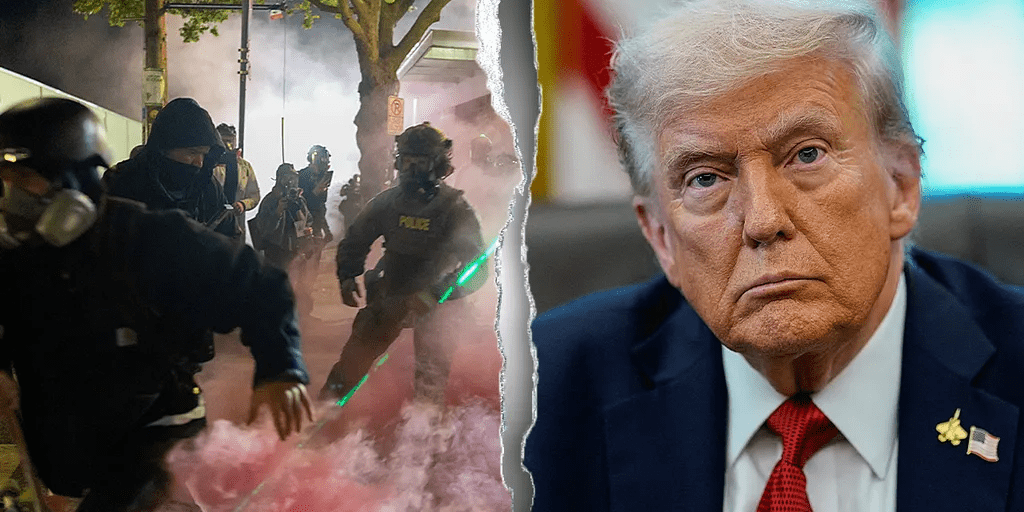
The decision represents a sharp reversal of an earlier October 4 ruling by U.S. District Judge Karin Immergut, who had temporarily blocked the order on the grounds that there wasn’t sufficient evidence to invoke the Insurrection Act. Her injunction effectively delayed the mobilization of federal troops for over two weeks. But the 9th Circuit’s panel ruled late Monday that Trump’s administration acted within constitutional authority, citing credible intelligence of organized threats to federal property and personnel in Portland’s downtown zone.
The victory was immediately praised by conservative leaders as a long-overdue step toward reestablishing peace in a city that has been a flashpoint for violent clashes since 2020. The court’s decision also validates Trump’s September 30 executive order designating Antifa as a domestic terrorist organization — a move that had drawn fierce criticism from progressive groups but strong support from law enforcement and Republican governors nationwide.
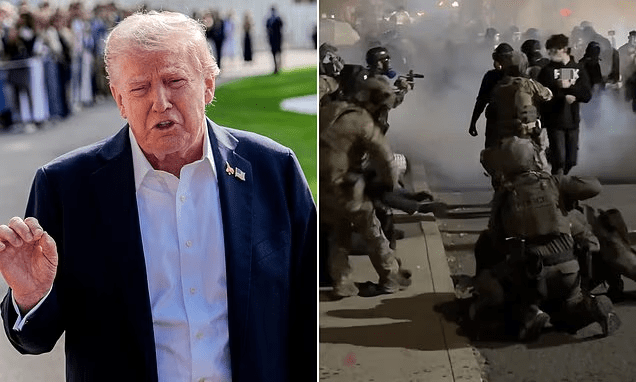
A senior White House official confirmed that preparations are already underway to deploy hundreds of Guard members to Portland “within hours.” The deployment will prioritize the protection of federal buildings, officers, and citizens in response to credible intelligence suggesting renewed violence near Immigration and Customs Enforcement (ICE) facilities. Photos circulating online already show armored vehicles, riot gear, and logistical staging areas being assembled across Oregon.
President Trump, speaking from Mar-a-Lago shortly after the ruling, hailed the decision as a “huge victory for safety, freedom, and the American people.” In his remarks, he thanked the court for “standing on the side of justice” and reaffirmed his commitment to defending cities under siege by “radical agitators pretending to be protesters.” The President emphasized that peaceful assembly remains protected but warned that the federal government would “not tolerate violent extremists hiding behind protest signs.”
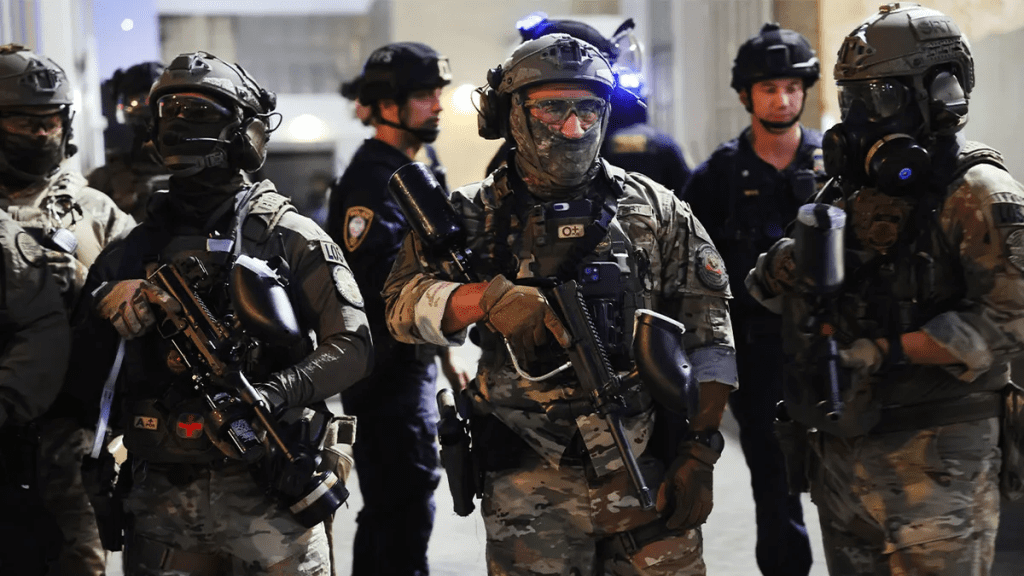
The images accompanying the news tell the story of a city on edge: heavily equipped National Guard troops lined up against protesters in downtown Portland, demonstrators waving anti-ICE signs outside boarded-up buildings, and Trump photographed beside military advisors as he discussed the operation’s scope.
Democrats and activist groups have criticized the ruling as government overreach, with Oregon Governor Tina Kotek calling it “a dangerous precedent for state sovereignty.” Yet many residents, exhausted by years of unrest, see it as a relief. “It’s about time,” said one Portland business owner whose store has been vandalized repeatedly since 2020. “People are tired of chaos. We just want peace and protection.”
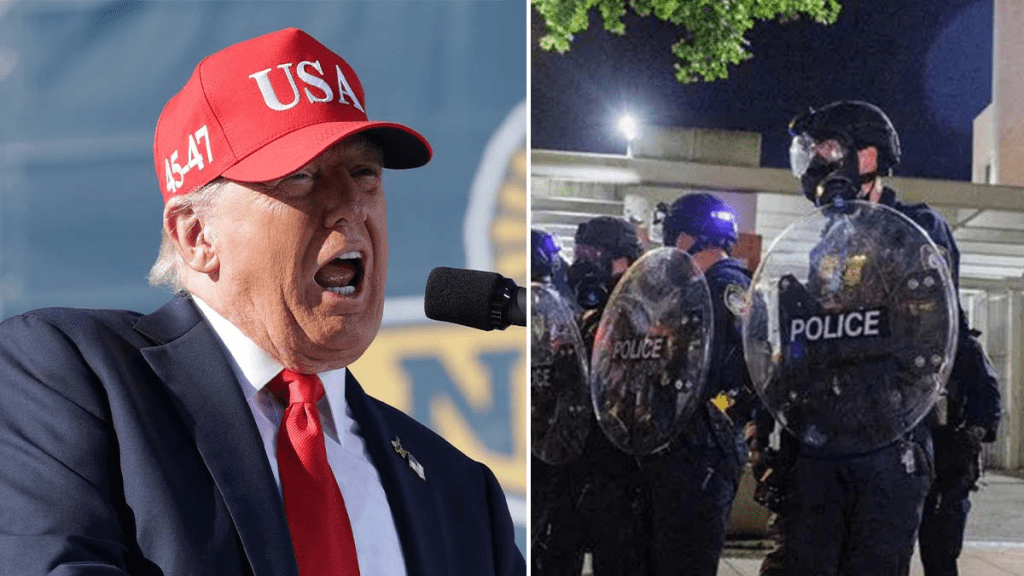
The ruling represents not just a legal victory for the Trump administration but a symbolic one — signaling that the federal judiciary is backing decisive action to restore stability after years of protest violence. The President’s supporters are framing it as a turning point in the national conversation on law enforcement, public safety, and government accountability.
For Trump, it’s a reaffirmation of the “law and order” platform that helped propel him back into the White House. As federal troops prepare to roll into Portland, the message is unmistakable: America’s cities will no longer be abandoned to disorder.
